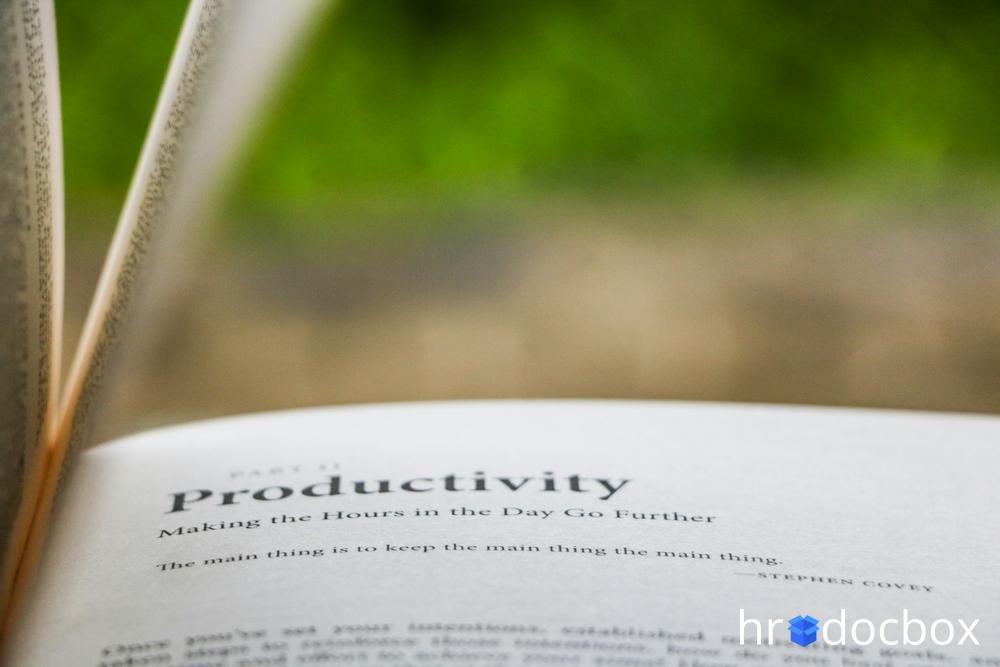Maximising Productivity - How HR Departments Empower Managers
Darryl Horn, Thursday, 23 November 2023 • 3 min read

The role of Human Resources (HR) goes beyond traditional administrative functions. HR departments play a pivotal role in enabling managers to drive productivity, foster team engagement, and achieve organisational goals. By offering strategic support and resources, HR professionals empower managers to unleash the full potential of their teams.
Understanding Managerial Support
Supporting managers to maximise productivity involves a multifaceted approach. HR departments serve as strategic partners, providing the necessary tools, guidance, and frameworks for managers to thrive. This collaborative effort is essential for cultivating a high-performance culture and achieving sustainable business outcomes.
Providing Training and Development
HR departments can facilitate managerial effectiveness by offering tailored training programs. These initiatives can cover diverse areas, from leadership skills and conflict resolution to performance management techniques. By equipping managers with these competencies, they can navigate challenges more effectively and inspire their teams to excel.
“Investing in managerial training is investing in the success of the entire organisation. It’s about empowering leaders to guide their teams towards excellence.” - Sarah Collins, HR Director at BrightPath Solutions.
Implementing Performance Management Systems
Robust performance management systems are fundamental in optimising productivity. HR can assist managers in setting clear goals, establishing key performance indicators (KPIs), and conducting regular performance evaluations. This fosters accountability, identifies areas for improvement, and recognises exceptional contributions.
A manufacturing company revamped its performance management system, aligning individual goals with the company’s strategic objectives. With HR’s guidance, managers received training on conducting impactful performance reviews, resulting in a 20% increase in productivity within six months.
Supporting Work-Life Balance
Promoting work-life balance is crucial for sustaining productivity levels. HR departments can collaborate with managers to implement flexible work arrangements, wellness programs, and mental health initiatives. These efforts nurture a supportive environment where employees feel valued, leading to increased engagement and productivity.
“A balanced workforce is a productive workforce. HR’s role is not just about policies but about fostering a culture where employees feel supported in both their professional and personal lives.” - Mark Thompson, HR Manager at Peak Performance Inc.
Encouraging Feedback and Communication
Effective communication channels and feedback mechanisms are essential for maximising productivity. HR can facilitate regular check-ins, anonymous surveys, and open forums that encourage dialogue between managers and their teams. This fosters a culture of transparency, trust, and continuous improvement.
An IT firm introduced ‘pulse surveys’ facilitated by HR, allowing employees to provide quick, anonymous feedback on managerial effectiveness. Insights gathered led to targeted coaching sessions for managers, resulting in improved team morale and a 15% rise in productivity metrics.
HR departments play a vital role in supporting managers to maximise productivity. By providing training, implementing effective systems, fostering work-life balance, and encouraging open communication, HR professionals empower managers to lead their teams to new heights of success.
About the author

Darryl is a Chartered CIPD Member, business leader and operational manager with 30 years experience in on-the-ground and strategic HR, specialising in Human Resources Management, Employment Law, Employee Relations and Learning & Development.
darryl@hrdocbox.co.uk